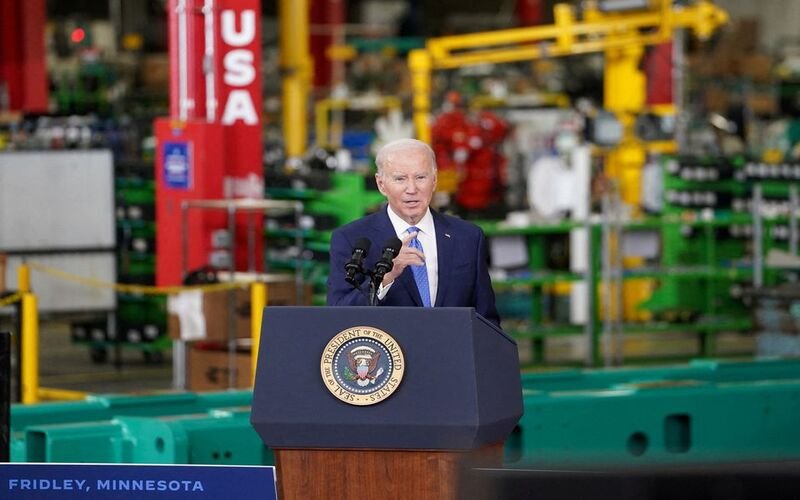The U.S. Senate overruled President Joe Biden’s decision to suspend some “Buy America” requirements for government-funded electric car charging stations by voting 50 to 48. However, the White House threatened to veto the legislation.
The Republican bill, according to the White House, would completely do away with the requirement that government-funded electric vehicle (EV) chargers be made domestically, “harmeding domestic manufacturing and American jobs.”
Along with Republicans, Senate Democrats Sherrod Brown, Joe Manchin, Jon Tester, and independent Kyrsten Sinema voted against the measure. In February, the Federal Highway Administration (FHWA) decided to forego some standards until July 2024, citing the need to allow “EV charger acquisition and installation to proceed immediately.”
Congress has set aside $7.5 billion for electric vehicle charging stations. The Biden administration’s efforts to increase sales of electric vehicles depend on financing. According to the White House, the measure to revoke the waiver would also nullify the FHWA’s decision to include EV chargers in the Buy America regulations.
Consequently, the White House stated that EV chargers would not be subject to any Buy America rules, reiterating the Reagan administration’s 1983 decision to remove manufactured goods from such requirements.
Senator Marco Rubio, a Republican, refuted the White House’s position, claiming that the administration may unilaterally revoke the 1983 ruling at any moment. Rubio says the waiver will enable public funds to “go into the hands of Chinese companies to build electric vehicle charging stations.”
Infrastructure projects like EV chargers are required under the 2021 bipartisan infrastructure plan to get at least 55% of their building materials—including iron and steel—from domestic suppliers and manufacturers in the United States.
The laws won’t enforce the 55% need until July 2024, although money for EV chargers manufactured by then will be available if installation starts by October 2024.
Some of the most critical components of EV chargers, including the power transformer, heating and cooling fans, and internal structural frame, are made of iron and steel. More steel is needed for chargers with cabinets that hold the product; in certain situations, this extra steel can account for up to 50% of the chargers’ overall cost.
States and businesses in the United States have issued warnings that the demand for EV chargers worldwide is putting pressure on the supply chain, making it more difficult or impossible to fulfill made-in-America requirements and build more chargers more quickly.



































Comment Template